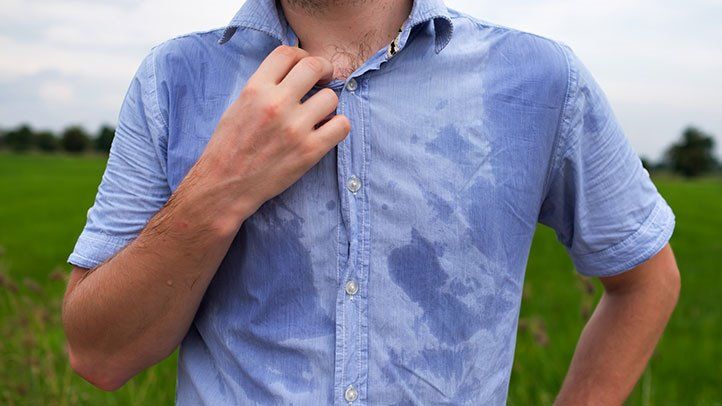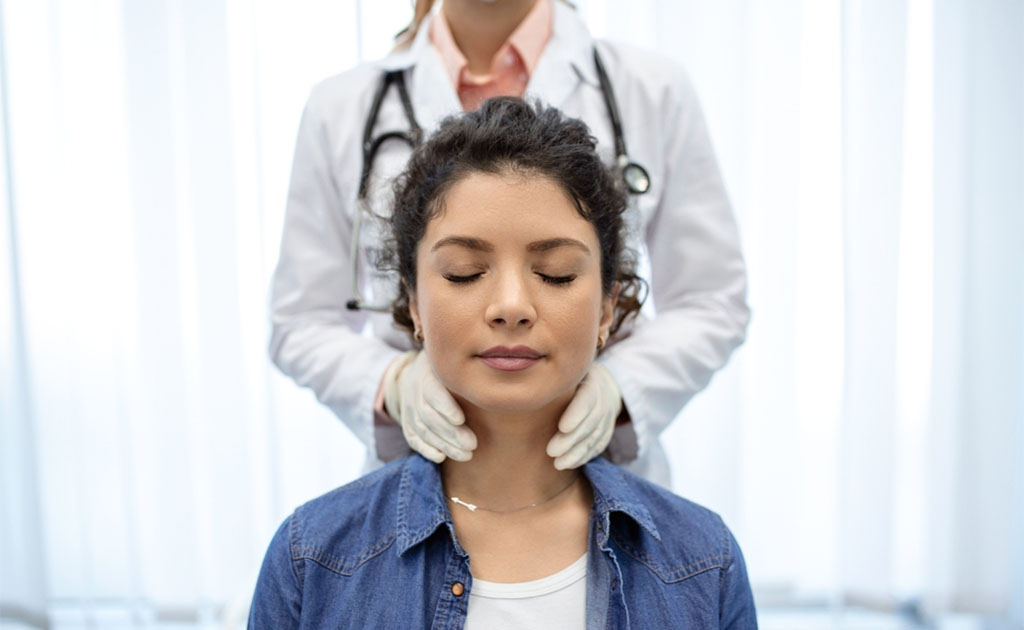
How to know if you have hyperhidrosis or excessive sweating?
Excessive sweating occurs when there is more sweating than expected based on the surrounding temperature, level of physical exertion, or stress. Excessive sweating can interfere with daily activities and cause embarrassment in social interactions. Excessive sweating, or hyperhidrosis, can occur all over the body or in specific areas of the body, such as the palms, soles, underarms , or face.
What are the causes of excessive sweating?
Hyperhidrosis can generally be divided into two categories, primary and secondary. Primary hyperhidrosis is usually accompanied by excess temperature , no clinical condition or disease, and most often occurs in specific areas, such as palms, soles, face, underarms, etc. The exact cause of primary hyperhidrosis is not yet clear, but it is thought to result from overactivity of the sweat glands. In some cases it can also be hereditary.
On the other hand, secondary hyperhidrosis can usually be caused by a disease or various clinical conditions or due to medication. One such clinical condition is acromegaly. It is a rare but serious disease. This disease is usually caused by the release of excess growth hormone as a result of a tumor in the pituitary gland. This results in overgrowth of certain parts of the human body such as hands, feet, forehead, jaw and nose.
Other reasons are:
- Diabetic hypoglycemia
- Hypothyroidism
- Leukemia
- Malaria
- Various infections
- Certain medications such as beta blockers and anti-depressants
- Menopause
- Neurologic disease
- Pheochromocytoma (a rare adrenal gland tumor)
- Tuberculosis
- lymphoma

What are the risks of excessive sweating?
Excessive sweating can cause physical discomfort, emotional distress and social embarrassment. A person suffers from low self-esteem due to visible sweat stains on body clothing and bad body odor. It can also cause loss of confidence. It can affect personal and professional relationships, limit social interactions, and interfere with daily activities. Also, constant sweating can lead to skin infections and other complications.
What are the benefits?
Although excessive sweating can cause many challenges, there are also benefits of sweating for the body. Sweat helps regulate body temperature by cooling the skin through evaporation. It helps eliminate toxins from the body and builds immunity against harmful skin bacteria. Sweating during exercise can protect the body from overheating. It helps to keep the skin acne free by excreting toxins from the body through sweat through the fine pores of the skin.

Tips to overcome excessive sweating
Although it may not always be possible to prevent excessive sweating, some daily lifestyle changes and strategies can help combat the problem.
1) Maintaining cleanliness
Regular bathing, use of good quality deodorant, clean loose clothing can reduce sweat odor.
2) Wear appropriate clothing
Choose loose clothing made of cotton, linen, cotton, or natural fibers that are breathable and moisture wicking.
3) Managing stress
Stress and anxiety can cause excessive sweating, so practicing relaxation techniques such as deep breathing exercises, yoga, or meditation may benefit.
4) Avoiding certain things that produce excess sweat
Identify and avoid potential triggers for excessive sweating, such as spicy foods, caffeine, alcohol and smoking.
5) Stay hydrated
Drinking plenty of water and consuming liquid foods help regulate body temperature and maintain overall health.
6) Maintain a healthy weight
Sometimes obesity can cause excessive sweating. So maintaining a healthy weight through regular exercise and following a balanced diet can avoid this situation.
If lifestyle changes do not relieve hyperhidrosis or excessive sweating, it is necessary to find out whether there is a medical condition or disease and seek medical attention if necessary. Hope today’s article will be helpful for those who are reading the embarrassment of excessive sweating.
Source: Shajgoj
